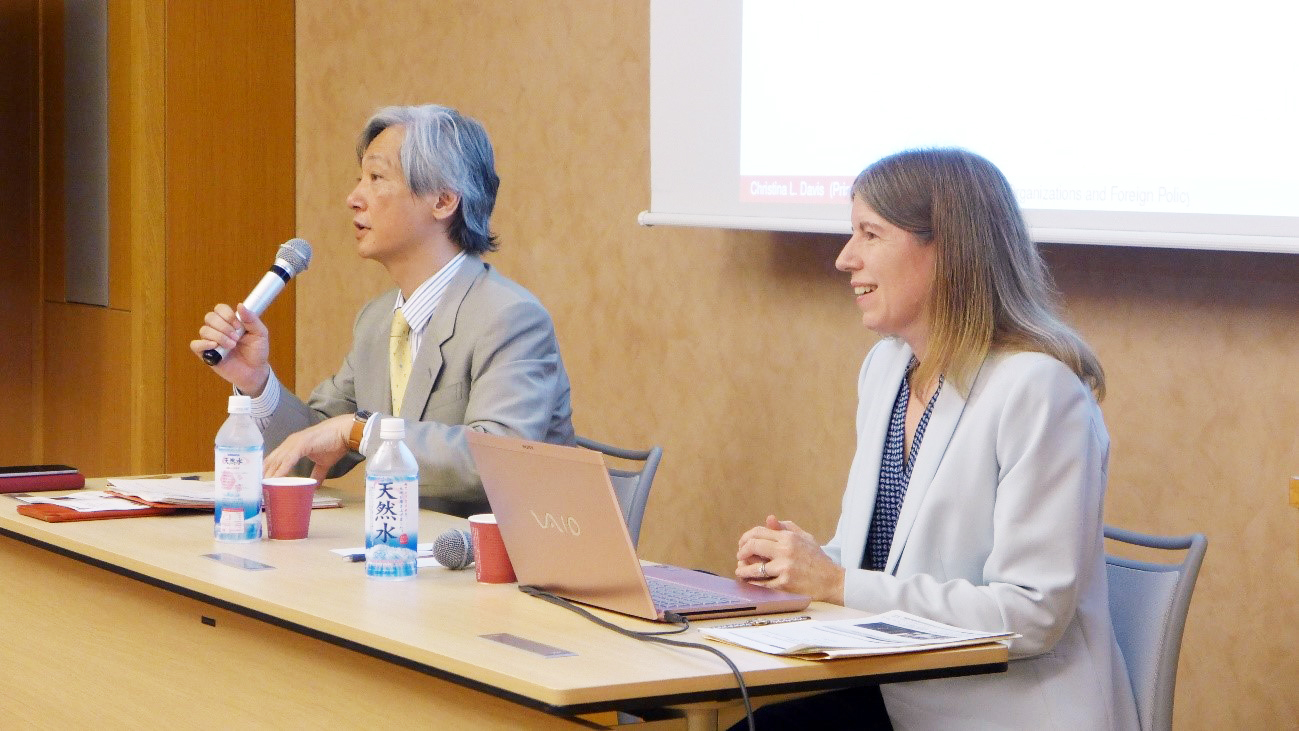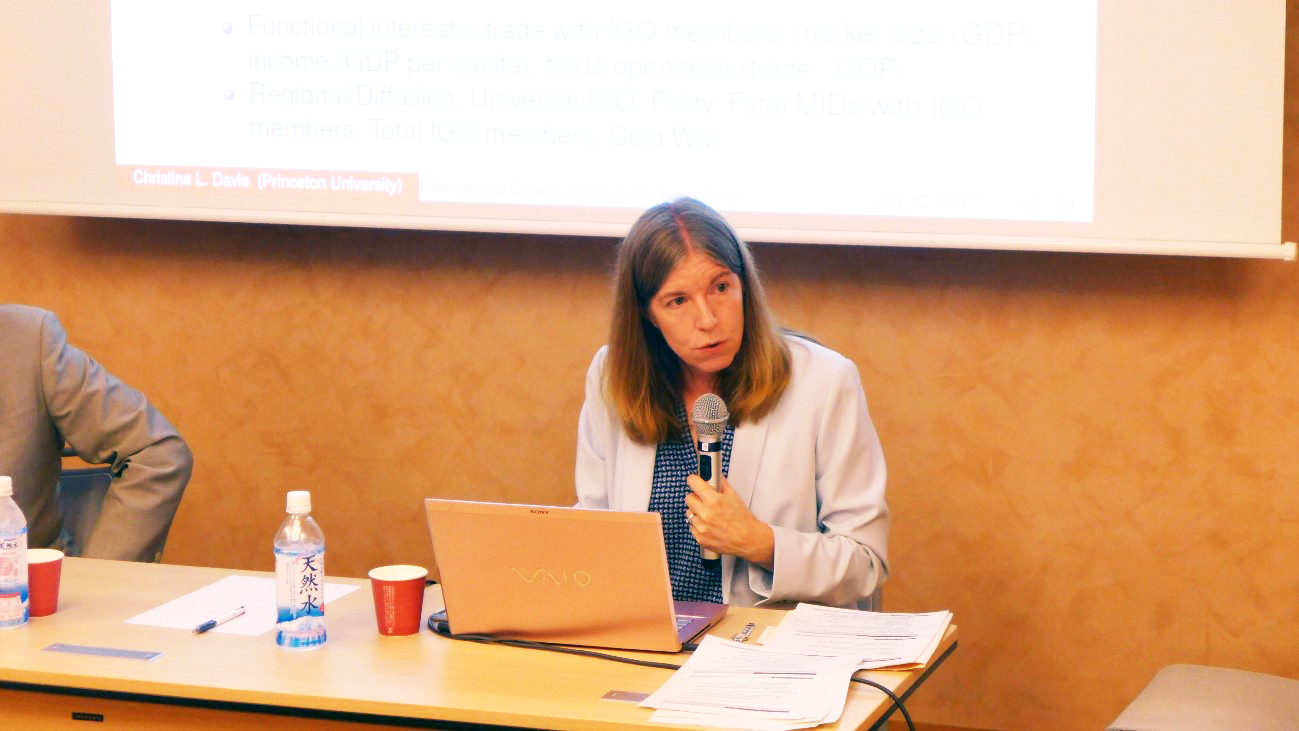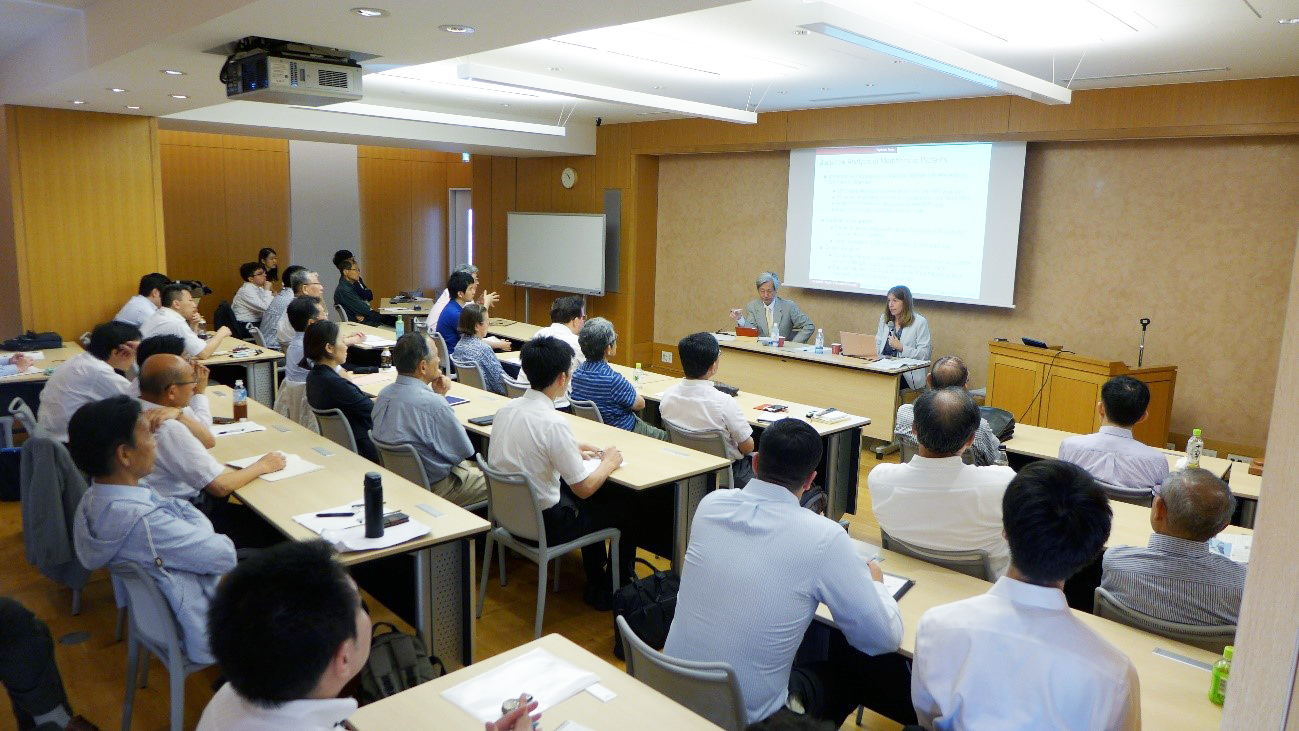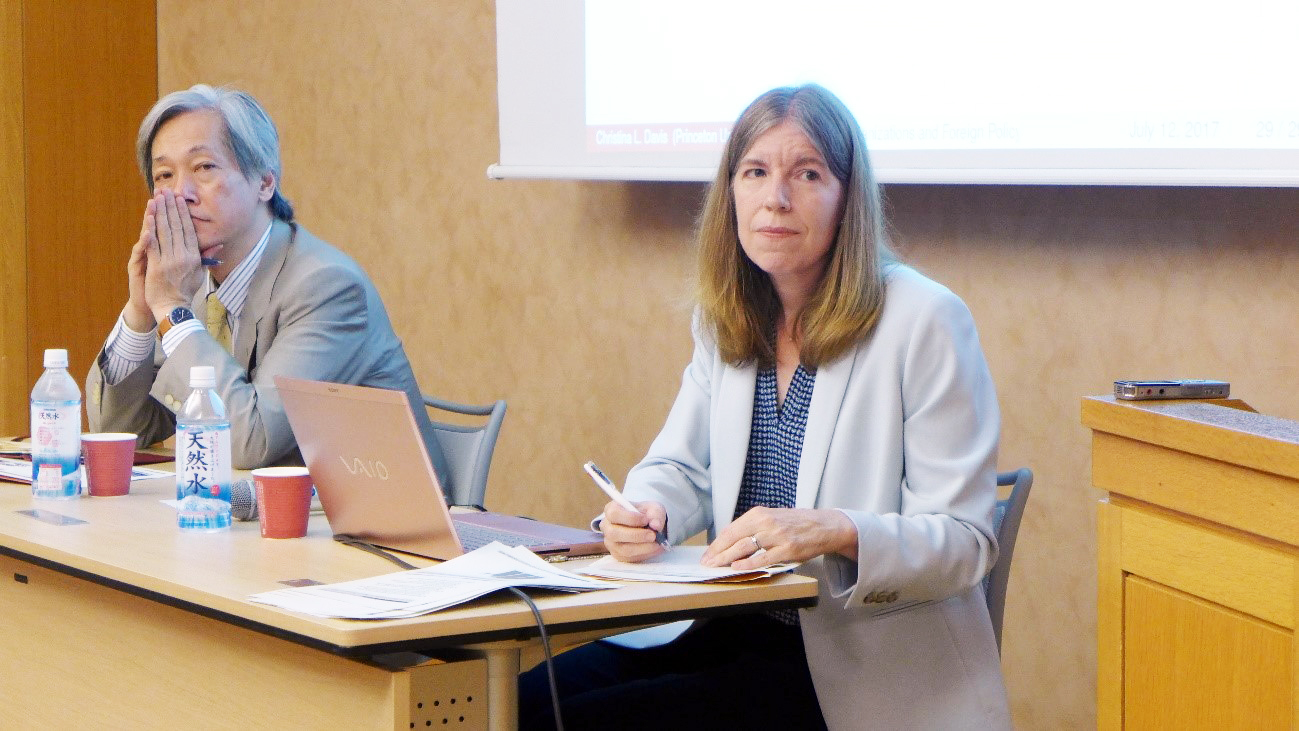SSU Forum with with Professor Christina Davis
| Date: | Wednesday, July 12 2017, 10:30-12:00 |
|---|---|
| Venue: | Conference Room, 3rd Floor, Ito International Research Center |
| Subject: | "International Organizations and Foreign Policy: The Case of Japan" |
| Lecture: | Christina Davis, Professor, Princeton University |
| Language: | English |
| Hosted by: | Security Studies Unit, Policy Alternatives Research Institute, the University of Tokyo |
The Security Studies Unit was honoured to host Christina Davis, Professor of International Relations at Princeton University, who delivered a talk entitled “International Organization and Foreign Policy”, in which she explored the mutual relations between patterns of membership in international organisations (henceforth: IOs) and various geopolitical and economic factors in shaping the foreign policy of states, with a particular focus on Japan.
Professor Kiichi Fujiwara, Director of PARI and of the SSU, chaired the session and introduced the speaker to a numerous audience as a very prolific as well as authoritative author working at the intersection of International Political Economy (IPE) and comparative politics. Professor Fujiwara was happy to have Professor Davis as a speaker for the third time in the SSU framework, the sign of a mutually beneficial relation which will certainly continue in the future. He also expressed his interest in the topic of IOs, one of the cornerstones of the liberal international order, particularly at a time when the role and function of such institutions may be challenged by the foreign policy course of the Trump administration.

Professor Davis thanked the host, and also expressed her gratitude for the past encounters, deeming them as very profitable in terms of feedback on her work. She introduced the topic of this talk remarking the importance of studying multilateralism today, when it seems to be challenged, particularly in the US. The talk was based on two different papers, and on the outline of an upcoming book. The basic question explores the relations between membership of IOs and the change in foreign policy trajectories in states, as well as the case of Japan in its relation to IOs, with the TPP being considered more in detail. Why do states decide to join international organisations? The answer can be very complex. In the case of Japan, its entire foreign policy since the Meiji era can be seen through the prism of IOs. Japan emerged as a recognised power while striving to be admitted to the early IOs, such as the International Telegraph Union (founded in 1865), despite having a limited telegraphic network, aiming at the symbolic and political value of such memberships. In 1933 Japan left the League of Nation over the international diplomatic reaction to its expansion in Manchuria, one of the steps towards the Pacific War. After the conflict, Japan sought again to be admitted to IOs, and the 1956 admission to the UN remains a central pillar for Japan’s position in the world and in its foreign policy architecture since then.

The case of Japan symbolizes how membership of certain IOs, or leaving them, signals a major international re-orientation of a country. Domestic political discussions on membership can lead to conflict, such as in the case of the Ukraine over the association treaty with the EU in 2014. Choosing an organisation means sometimes choosing sides, even in a geopolitical sense. This was rather clear a few years ago in the case of TTP, which appeared to possess a very strong geopolitical connotation as an agreement initiated by the US which programmatically excluded China, thus becoming attractive for those countries in the Pacific region who intended to launch a political message to Beijing. Japan’s decision to join the TPP was indeed motivated politically rather than economically, as Japan already has a great access to South East Asian markets through its network of bilateral free trade agreements and the US market has relatively low tariffs, so Japan would actually benefit more economically from a closer trade relation with China.
This example brings us back to the initial and more general question: why do states join international organisations? Standard literature on the topic highlights the importance of direct interests, which of course cannot be discarded. However, the picture appears to be more complex. The role of security in relation to geopolitics seems for instance very prominent in this respect. Membership and acceptance of new members in a given IO often entails a broad spectrum of considerations, and IOs functions more as discriminatory clubs rather than contracts with advance screening of compliance. Membership in IOs has a significant impact on state behavior, as IOs can help the shaping of policies and norms in particular areas.

Professor Davis then proceeded with the illustration of a statistical model for the measurement of factors leading to the decision to join IOs, especially geopolitical alignment, which appears to be a major influencing factor. She then applied the model to Japan, and the results, namely a rising role for geopolitics to shape Japanese decisions about participation in IOs since the 1990s, appears to be consistent with the more challenging security environment in East Asia after the end of the Cold War. Finally, she emphasised the role of broader geopolitical considerations for Japan’s admission in the GATT in the 1960s under US sponsorship and despite the opposition of European allies, as well as in the case of TPP when the Abe administration successfully produced a narrative which links security and trade, a narrative which remains in place despite the changing fortunes of TPP following the US withdrawal.

